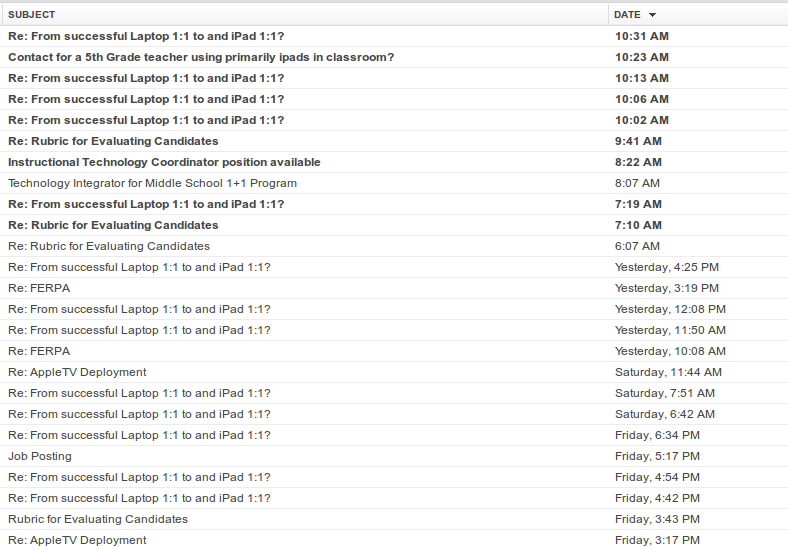More Caines, Please
4 min read
I've seen a few references to Caine's Arcade on various education communities where I participate. It's a pretty amazing story - a kid builds a full arcade out of cardboard boxes from his father's business. The kid - Caine - does it for the love of the games. It's awesome, inventive, fun, and driven entirely by the kid. The whole video is great, but my favorite two parts are the check for the Fun Pass (at 3:20) and the ticket dispenser (at 5:10).
Caine's Arcade from Nirvan Mullick.
But what really struck me about the video was the contexts within which I discovered it. The discussions about the video - which were all incredibly positive - were sandwiched between longer, meatier threads, often about iPad deployment: what's the best way to manage a fleet of iPads? Should iPads be replaced every 1, 2, or 3 years (no kidding - real question)? What is the best app for [fill in shiny thing]?
And the chorus within these iPad threads is how the iPad changes everything because the iPad can be passed from one kid to another, you can touch the screen, and kids learn how to use it in less than two minutes, with no training, and teachers like it because of the cool factor. And concerns about environmental sustainability, human rights of workers, vendor lock-in, requiring elementary school students to become consumers as a pre-requisite to learning, equitable access to resources regardless of socioeconomic level - all these get discarded because the iPad is here, it's well-marketed, decision makers feel comfortable about their use, and, therefore, requests to buy them get approved.

But then, something like Caine's Arcade gets shared with us and illustrates the gap between the type of learning we claim to celebrate, and the type of learning we fund. Caine's work - passion-driven, creative, open ended, done for the joy of doing it - is supposed to be what we aspire to within our educational system. Instead, we fund improved testing systems, and innovation devolves to school- and district-wide rollouts of a consumer product within an educational setting. The gap between the type of learning we claim to love and the type of learning we fund is enormous - big enough to fit the marketing hype flowing from Cupertino; big enough to fit all of the certificates from the Google, Apple, and Discovery educator programs; big enough to fit the deadly policy decisions inflicted on schools by underinformed politicians; big enough to fit the all the marketing, policy, and rhetoric that attempts to portray education as a problem that can be solved with the right product.
The future of education isn't waiting for us in an app store.
The future of education involves making things - learning how to experiment, fail, work, try, reflect on the experience, and grow, and try again.
How many Maker Faires could be supported for the cost of an iPad rollout, or the cost of a robo-grader? How much staff time would need to be spent writing the AUP for a cardboard box? Is our fascination with technology for the benefit of learners, or so districts, schools, and technologists can justify how we spend money and our student's time?
Obviously, this isn't a black and white issue, but the large companies in the education space are actively lobbying our legislators, and putting marketing and sales efforts in place to define the environments within which people learn.
Caine's Arcade is learning. It's taking what you have around you, ripping it apart, re-assembling it, playing with it, and seeing what happens. I look forward to the day when we fund the vision of learning we claim to want, rather than the vision of learning we are told the economy and our security requires.
Less panic. Less products. More learning. More joy.
More Caines, please.


